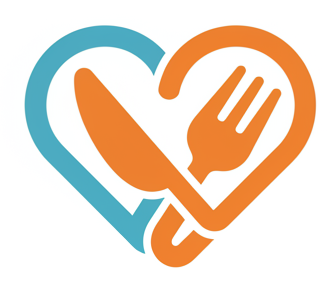Welcome to our guide on intermittent fasting for beginners. This is a great starting point for those wanting to boost their health. We’ll cover the basics, benefits, and offer tips for starting your fasting journey.
Looking to better your health, lose weight, or boost energy? Intermittent fasting can help. We’ll explore different methods, the science behind fasting, and how to fit it into your life. This guide is perfect for those new to intermittent fasting.

Introduction to Intermittent Fasting
Intermittent fasting can be a lasting and effective health strategy. Our aim is to offer a straightforward guide to kickstart your fasting journey.
Key Takeaways
- Intermittent fasting is a powerful tool for improving overall health
- A beginner’s guide to fasting can help you get started with intermittent fasting
- Intermittent fasting for beginners requires a clear understanding of the different methods and benefits
- Incorporating intermittent fasting into your lifestyle can be simple and sustainable
- Our comprehensive guide provides practical tips and advice for intermittent fasting: a beginner’s guide
What Is Intermittent Fasting?
Intermittent fasting is a way of eating that alternates between eating and fasting. It helps with weight loss, improves health, and can even extend your life. This method has many benefits, like better insulin control and less inflammation.
There are different ways to do intermittent fasting, each with its own advantages and challenges. You might try alternate-day fasting, 16:8, or 5:2. It’s important to pick a method that fits your life and preferences. This way, you can enjoy the benefits of intermittent fasting.
- Weight loss and improved body composition
- Improved insulin sensitivity and reduced risk of type 2 diabetes
- Increased human growth hormone (HGH) production, which can help with weight loss and muscle gain
- Improved mental clarity and focus
Adding intermittent fasting to your life can bring many benefits. It’s a great way to improve your health or just try something new. So, if you’re interested, give it a try.
The Biology of Fasting: How Your Body Responds
Starting intermittent fasting changes your body in big ways. At first, your body uses stored glucose for energy. Later, it starts burning fat, leading to intermittent fasting results like weight loss and better health.
The benefits of intermittent fasting for weight loss are many. Some key benefits include:
- Reduced insulin levels
- Increased human growth hormone production
- Improved mental clarity and focus
As you get used to fasting, you might notice changes in hunger and metabolism. It’s important to listen to your body and adjust your fasting plan. With regular practice, you can see big improvements in your health.
Understanding how fasting affects your body helps you make better health choices. If you want to lose weight or boost your health, intermittent fasting for weight loss can be a great tool.
| Benefits of Intermittent Fasting | Description |
|---|---|
| Weight Loss | Reduced insulin levels and increased fat burning |
| Improved Metabolic Health | Increased human growth hormone production and improved insulin sensitivity |
| Increased Mental Clarity | Improved focus and reduced inflammation |
Key Benefits of Intermittent Fasting
Intermittent fasting brings many benefits. It helps with weight loss and fat burning. It also boosts metabolic health, mental clarity, and cellular repair. Adding it to your life can greatly improve your health and wellbeing.
Weight Loss and Fat Burning
One big benefit is losing weight and burning fat. When you fast, your body uses stored fat for energy. This leads to weight loss and better body shape. It also makes your body more efficient at burning fat and improves insulin sensitivity.
Metabolic Health Improvements
Intermittent fasting also makes your metabolism better. It reduces inflammation and improves insulin sensitivity. This lowers the risk of diseases like diabetes and heart disease. It’s not just for weight loss; it offers many health benefits.
Mental Clarity and Focus
Intermittent fasting also boosts your mind. It reduces inflammation and increases BDNF, a protein that helps your brain. This improves your thinking and lowers the risk of brain diseases.
| Benefit | Description |
|---|---|
| Weight Loss | Improved fat burning and weight loss |
| Metabolic Health | Improved insulin sensitivity and reduced inflammation |
| Mental Clarity | Improved cognitive function and reduced risk of neurodegenerative diseases |
Popular Intermittent Fasting Methods
There are many intermittent fasting methods to choose from. Each has its own benefits and drawbacks. Knowing the different intermittent fasting schedules helps you pick the right one for your life and goals.
Some top intermittent fasting methods are:
- 16:8 method: fasting for 16 hours and eating in an 8-hour window
- 5:2 diet: eating normally for 5 days and limiting calories to 500-600 on the other 2 days
- Alternate-day fasting: alternating between normal eating days and calorie-restricted or fasting days
These intermittent fasting schedules can be tailored to fit your needs. It’s key to pick a method that’s easy to follow and enjoyable. This makes sticking to it more likely.
Exploring the various intermittent fasting methods and intermittent fasting schedules helps you find the best fit. This way, you can reach your health and wellness goals.
Getting Started with Intermittent Fasting: A Beginner’s Guide
Starting intermittent fasting can seem scary, but it’s doable. Knowing the basics and how to fit it into your life is key. Tips like staying hydrated and listening to your body are vital for success.
Choosing the right fasting window is important. Pick a schedule that fits your life and likes. Options like 16:8, 5:2, or alternate-day fasting are popular. Think about your goals, like losing weight or feeling clearer mentally, when picking your first fast.
Essential Tips for Success
- Start small and gradually increase your fasting window
- Stay hydrated by drinking plenty of water and electrolyte-rich beverages
- Listen to your body and adjust your fasting schedule as needed
- Plan your meals in advance to ensure you’re getting the nutrients you need during your eating window
Follow these tips to have a great fasting experience. Be patient and kind to yourself as you start. With time, you’ll find a fasting rhythm that meets your goals.
What to Eat During Your Eating Window
When you’re on intermittent fasting meals, it’s key to eat foods that are full of nutrients. Choose whole, unprocessed foods like veggies, fruits, lean proteins, and whole grains. This helps support your health and intermittent fasting for weight loss goals.
Planning your meals well is crucial for your fasting journey. Here are some tips to keep in mind:
- Eat protein-rich foods like lean meats, fish, and eggs to help build and repair muscles
- Incorporate healthy fats like nuts, seeds, and avocados to support heart health and satisfaction
- Choose complex carbohydrates like whole grains, fruits, and vegetables to provide sustained energy
By following these guidelines and focusing on whole, nutrient-dense foods, you’ll be able to create intermittent fasting meals that support your overall health and intermittent fasting for weight loss goals. Remember to stay hydrated by drinking plenty of water throughout your eating window.

Common Challenges and How to Overcome Them
Starting intermittent fasting can come with challenges. It’s key to have the right mindset and strategies. With the right intermittent fasting tips, you can reach your health goals.
Common challenges include managing hunger, handling social situations, and keeping energy up. Understanding intermittent fasting for beginners is crucial. This means knowing how to pick the right fasting method, planning meals, and staying hydrated.
Here are some tips to help you overcome common challenges:
- Stay hydrated by drinking plenty of water during your fasting window
- Plan your meals in advance to ensure you’re getting the nutrients you need
- Find healthy ways to manage hunger, such as drinking tea or taking a walk
By following these tips and staying committed, you can beat common challenges. Always listen to your body and adjust as needed.
With the right mindset and strategies, you can conquer any obstacle in intermittent fasting. Whether you’re new or experienced, staying informed and adapting to your body’s needs is key.
| Challenge | Solution |
|---|---|
| Managing Hunger | Stay hydrated, plan meals, and find healthy ways to manage hunger |
| Dealing with Social Situations | Plan ahead, communicate with friends and family, and find supportive communities |
| Maintaining Energy Levels | Stay hydrated, eat nutrient-dense foods, and get enough sleep |
Exercise and Intermittent Fasting
Adding exercise to your intermittent fasting plan can really boost your results. It not only helps with weight loss but also improves your health. Finding the right time to work out is key, whether it’s during fasting or after eating.
Studies show that exercising while fasting can aid in weight loss and better insulin use. But, it’s important to pay attention to how your body feels. If you’re new to fasting, start with gentle exercises and slowly increase the intensity as you get used to it.
Best Times to Work Out
- Early morning: Exercising on an empty stomach can be beneficial for weight loss and improving mental clarity.
- After a meal: If you’re feeling weak or lightheaded during a fast, exercising after a meal can help provide energy and support muscle growth.
Types of Exercise to Consider
Choosing the right exercises is crucial when fasting. Look for low-impact activities that are easy on your body. Here are some good options:
- Yoga: A low-impact exercise that can help improve flexibility and balance.
- Brisk walking: A great way to get your heart rate up and improve cardiovascular health.
- Strength training: Building muscle can help support weight loss and overall health, but be sure to listen to your body and adjust intensity accordingly.
Adding exercise to your fasting routine can greatly improve your health and well-being. This leads to better fasting results. Always listen to your body and adjust your workout plan to ensure a safe and successful fasting experience.
Who Should Not Try Intermittent Fasting
When you’re new to intermittent fasting for beginners, it’s key to know it’s not for everyone. Some people should not try it or should be very careful. Always talk to a doctor before starting any new diet or fasting plan.
Pregnant women, kids, and people with diabetes or eating disorders should not try it. It’s also vital to follow intermittent fasting tips and rules for a safe and good experience.
Here are some important things to remember:
- Pregnant or breastfeeding women should avoid intermittent fasting, as it may deprive the fetus or baby of essential nutrients.
- Children and teenagers should not try intermittent fasting, as it may interfere with their growth and development.
- Individuals with certain medical conditions, such as diabetes, low blood pressure, or a history of eating disorders, should consult with their healthcare provider before starting intermittent fasting.
Before starting an intermittent fasting regimen, it’s essential to consult with a healthcare professional to determine if it’s safe and suitable for your individual needs. By following intermittent fasting tips and guidelines, you can ensure a successful and healthy experience.

Tracking Your Progress and Results
Tracking your progress is key to success with intermittent fasting for weight loss. By monitoring your results, you can spot patterns, stay motivated, and tweak your routine as needed.
Many tools and apps can help you track your progress. These include mobile apps and spreadsheets. Some top choices are:
- MyFitnessPal: a calorie tracking app for monitoring food intake during your eating window
- Zero: a fasting app for tracking your fasting schedule and progress
- Google Sheets: a spreadsheet for tracking weight, measurements, and health metrics
It’s not just about tracking weight and measurements. You should also measure success in other areas. This includes changes in body composition, energy levels, and overall health. A holistic approach to tracking progress gives you a full view of your results and helps you make better decisions.
Common Mistakes to Avoid
When starting intermittent fasting for beginners, it’s easy to make mistakes. Drinking enough water is key to avoid headaches and feeling tired. Also, don’t ignore your body’s signals, as ignoring them can cause burnout.
To steer clear of these errors, here are some intermittent fasting tips:
- Drink plenty of water during your eating window
- Listen to your body and take rest days when needed
- Be consistent with your fasting schedule
By avoiding these common mistakes, you can make sure your intermittent fasting journey is successful and lasting. Always drink water, listen to your body, and stick to your plan.
Conclusion
Intermittent fasting is a game-changer for health and happiness. This guide has shown how it can help you lose weight, boost your metabolism, and even live longer. It’s all about making smart choices for your body.
Starting out with intermittent fasting for beginners requires patience and understanding. Everyone’s body is different. So, it’s important to find what works for you by trying different approaches.
By diving into intermittent fasting: a beginner’s guide, you’re on the path to a better life. Stay committed and watch your health and energy soar. You’re about to discover a new, healthier you.
Disclaimer: This article is for informational purposes only and does not constitute medical advice. Always consult a healthcare professional before starting a new exercise or wellness routine
FAQ
What is intermittent fasting?
Intermittent fasting means eating in cycles. You eat for certain times and then fast. It helps with weight loss and improves health.
What are the benefits of intermittent fasting?
It helps you lose weight and burn fat. It also boosts your metabolic health and mental focus. Plus, it can make you live longer.
What are the different intermittent fasting methods?
There are many methods like the 16:8 and 5:2 diets. Each has its own benefits and challenges. Choose one that fits your life and goals.
How do I get started with intermittent fasting?
First, pick a fasting method. Then, plan your first fast. Stay hydrated and manage hunger to succeed.
What should I eat during my eating window?
Eat nutrient-rich foods when you’re not fasting. Include protein, healthy fats, and complex carbs. Meal planning helps you stay on track.
What are some common challenges with intermittent fasting?
You might feel hungry or struggle with social events. But, there are ways to overcome these. Stay hydrated and find strategies to keep going.
How do I incorporate exercise into my intermittent fasting routine?
Exercise is key with intermittent fasting. Find the best times to work out. Choose exercises that fit your fasting schedule.
Who should not try intermittent fasting?
Pregnant women, children, and people with certain health issues should avoid it. Always talk to a doctor before starting.
How do I track my progress and results with intermittent fasting?
Tracking your progress keeps you motivated. Use apps and tools to monitor your health. Look at changes in your body and energy levels.
What are some common mistakes to avoid with intermittent fasting?
Don’t forget to drink water and listen to your body. Stay consistent to avoid setbacks. This helps you reach your health goals.






